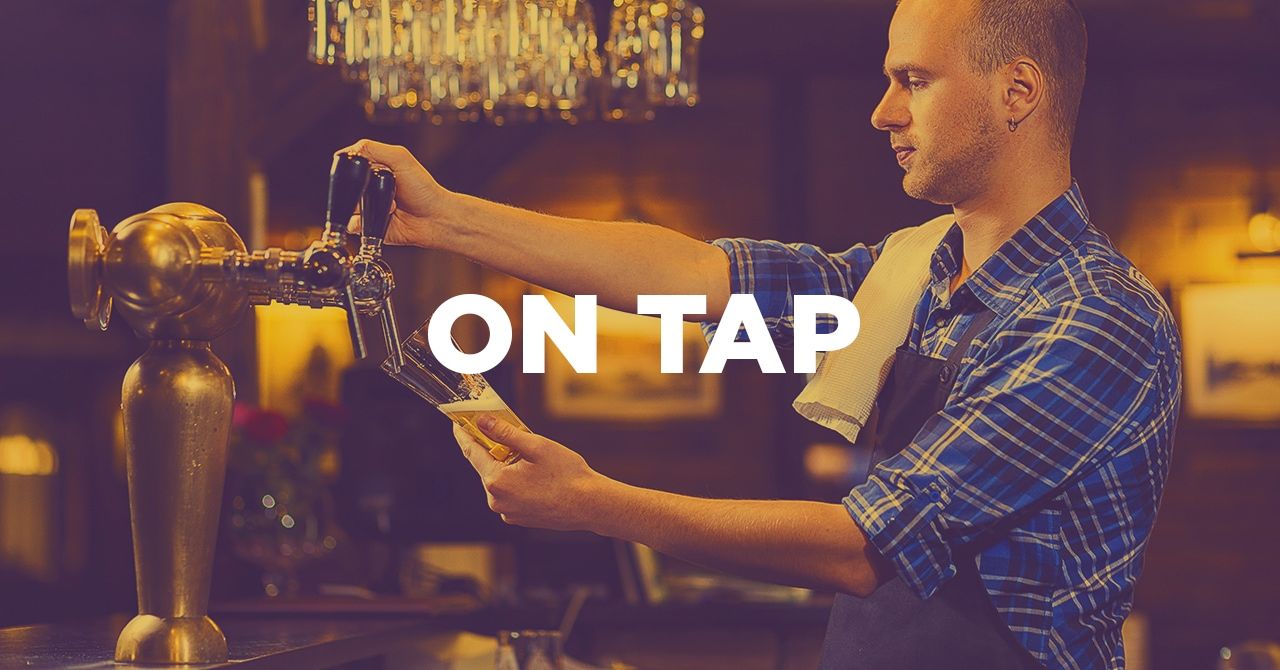
What is the Meaning of “On Tap?”
The phrase “on tap” has migrated out from its business of origin into the general English lexicon over the course of decades. What “on tap” means at a bar is slightly different to how it is used in everyday conversation, but the essence remains.
The phrase “on tap” has migrated out from its business of origin into the general English lexicon over the course of decades. What “on tap” means at a bar is slightly different from how it is used in everyday conversation, but the essence remains.
So where and when did we get this phrase, and how do we continue to use it?
Historic phraseology
Taverns and public houses have been a hub of social life across Europe and the West for thousands of years and thus have played an integral role in the development of languages and idioms. From a literal standpoint, “on tap” means whatever type of beer happened to be in the tap, or spigot, at the bar on that particular day. Recorded usage of the phrase in English dates back to the 15th century, and the roots of the word “tap” extend still further back into Middle Dutch (“tappe”).
To this day, you can walk into a bar, ask which beers are on tap, and be presented with a list from which you can choose.
When you’re not drinking
The most common context in which the phrase “on tap” is used outside of its original business is probably “on tap for today.” The environment is often professional. If someone is running a meeting, they might open with this phrase to signify a list of items to be discussed and handled, similar to the way a bartender might list off the beers on tap for a patron to select from.
For example:
On tap for today are team introductions, the budget plan, and the beginning-of-year party.
Tell me what’s on tap for today and we can prioritize the items by importance.
Some more examples:
I have extensive experience writing in a variety of genres, from literary novels to music reviews to academic articles. I appreciate the power of words.

